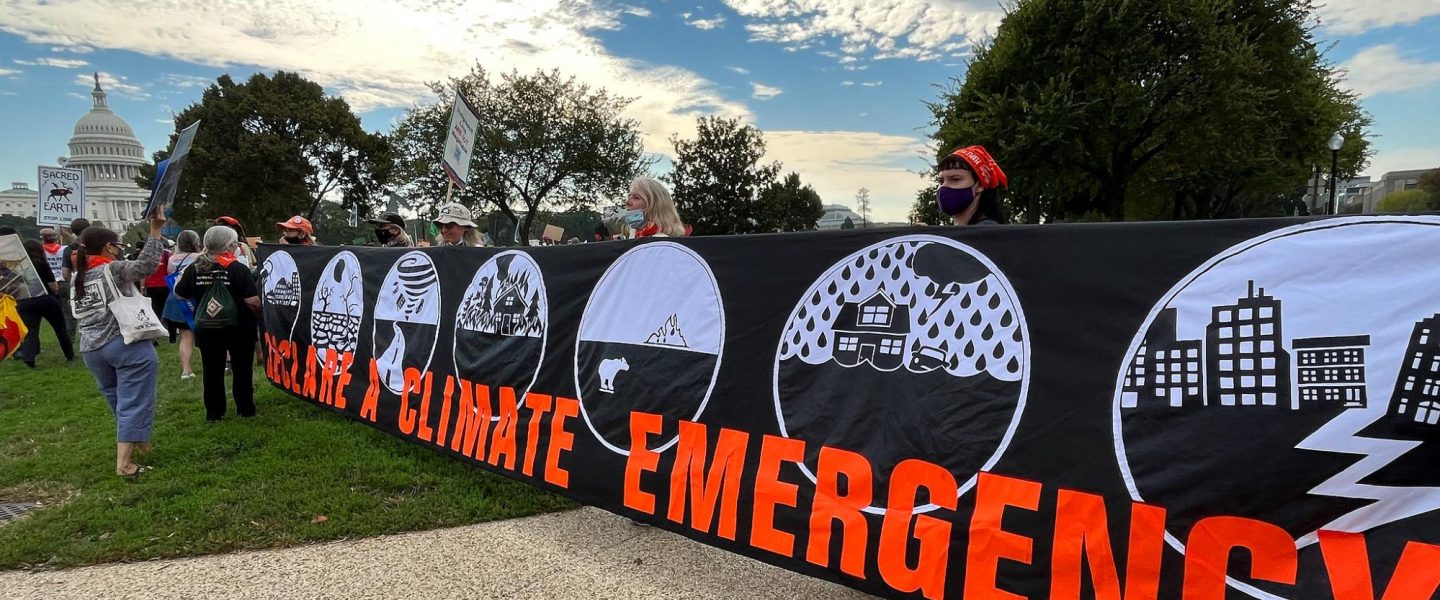Climate Activists Target Jets, Yachts and Golf in Global Protests Against Luxury Lifestyles
PICKS are stories from many sources, selected by our editors or recommended by our readers because they are important, surprising, troubling, enlightening, inspiring, or amusing. They appear on our site and in our daily newsletter. Please send suggested articles, videos, podcasts, etc. to picks@whowhatwhy.org.
|
Listen To This Story
|
Climate Activists Target Jets, Yachts and Golf in Global Protests Against Luxury Lifestyles (Maria)
The author writes, “Climate activists have spray-painted a superyacht, blocked private jets from taking off and plugged holes in golf courses this summer as part of an intensifying campaign against the emissions-spewing lifestyles of the ultrawealthy. Climate activism has intensified in the past few years as the planet warms to dangerous levels, igniting more extreme heat, floods, storms and wildfires around the world. Tactics have been getting more radical, with some protesters gluing themselves to roads, disrupting high-profile sporting events like golf and tennis and even splashing famous pieces of artwork with paint or soup. They’re now turning their attention to the wealthy. … ‘We do not point the finger at the people but at their lifestyle, the injustice it represents,’ said Karen Killeen, an Extinction Rebellion activist.”
The Story of Maui’s Tragedy Starts Way Before the Fires (Reader Steve)
The author writes, “To understand the roots of the tragedy on Maui, you have to take a long look back. … To see how we got here, you need to go back hundreds of years to the arrival of Europeans, who brought their deadly cocktail of disease and destruction, and to the U.S.-backed overthrow of Queen Liliʻuokalani — the leader of the independent kingdom of Hawaiʻi — and the land’s subsequent colonization.”
Oliver Anthony Addresses ‘Rich Men’ Discussion During GOP Debate: ‘I Wrote That Song About Those People’ (Al)
The author writes, “The first Republican debate on Wednesday night (Aug. 23) kicked off with a question about this week’s Billboard Hot 100 chart topper, Oliver Anthony Music’s ‘Rich Men North of Richmond.’ ‘As we sit here tonight, the No. 1 song on the Billboard chart is called “Rich Men North of Richmond.” It is by a singer from Farmville, Virginia, named Oliver Anthony. His lyrics speak of alienation, a deep frustration with the state of government and of this country,’ co-moderator Martha MacCallum said to the candidates. … ‘Why is this song striking such a nerve in this country right now?’ On Friday (Aug. 25), Anthony himself took to YouTube to share his thoughts about his whirlwind success, and about how his song has made its way into political discussions. ‘The one thing that has bothered me is seeing people wrap politics up into this,’ the singer said in the 10-minute clip. ‘It’s aggravating seeing people on conservative news trying to identify with me like I’m one of them.’”
Delusions of Détente (Sean)
From Foreign Affairs: “With U.S.-Chinese relations worse than they have been in over 50 years, an old fairy tale has resurfaced: if only the United States would talk more to China and accommodate its rise, the two countries could live in peace. … Talk enough, some analysts contend, and the United States and China might even strike a grand bargain that establishes stable spheres of influence and something akin to a G-2 to solve global problems. … Yet the history of great-power rivalry, and of U.S.-Chinese relations in particular, suggests that greater engagement is unlikely to mend ties between the countries and, if performed hastily, could actually catalyze violent conflict.”
Six Tropes to Look Out for That Distort Israel/Palestine Coverage (Gerry)
From FAIR: “To say that US news skews pro-Israel raises many an eyebrow, since the public has been conditioned to believe otherwise. With outlets like NPR vilified as ‘National Palestinian Radio’ and papers like the New York Times castigated by pro-Israel watchdogs for lending ‘the Palestinian narrative’ undue credence (CAMERA, 10/15/13), the myth of pro-Palestine bias appears plausible. Yet such claims have been litigated, and the verdict is plain: US corporate media lean in favor of Israel. … Some trends are more ubiquitous than others, which is why it is vital that news readers become acquainted with the tropes that dominate coverage of the Israeli occupation.”
This Psychologist Wants to Vaccinate You Against Fake News (Reader Jim)
The author writes, “Traditional vaccines protect us by feeding us a weaker dose of pathogen, enabling our bodies’ immune defenses to take note of its appearance so we’re better equipped to fight the real thing when we encounter it. A psychological vaccine works much the same way: Give the brain a weakened hit of a misinformation-shaped virus, and the next time it encounters it in fully-fledged form, its ‘mental antibodies’ remember it and can launch a defense.”
Why the Famed Appalachian Trail Keeps Getting Longer — And Harder (Laura)
From The Washington Post: “Though fixed in the public imagination, the world-famous footpath, which stretches from Georgia to Maine, has been stretched, shrunk, rerouted and redesigned since it was declared complete in 1937.”




